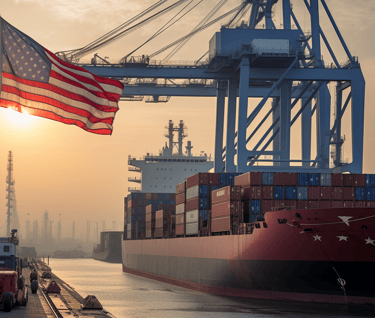Extending Section 301 Exclusions and Inviting Public Commentary
A quick look at the USTR's decision to extend Section 301 tariff exclusions on Chinese imports and the role of public commentary in shaping trade policies


International trade relations between the United States and China are perpetually in flux, influenced by evolving policies, economic imperatives, and the need for innovation in addressing complex trade issues. The Office of the United States Trade Representative (USTR) has once again extended certain exclusions from the Section 301 tariffs targeting China's practices related to technology transfer, intellectual property, and innovation. This move, detailed in a recent notice, underscores the USTR's commitment to a balanced approach in trade policies, fostering an environment conducive to dialogue and adaptation.
In September 2023, a decision was made to extend 352 previously reinstated exclusions and 77 COVID-related exclusions through the end of 2023. But, recognizing the broader implications and the need for a comprehensive review, the USTR has announced a further extension through May 31, 2024. This extension not only provides a temporary reprieve from additional duties (ranging from 7.5% to 25%) on certain Chinese products but also opens the door for public commentary, ensuring stakeholders can voice their perspectives and contribute to the decision-making process.
The USTR's stance includes a request for comments, inviting interested parties to share their insights by February 21, 2024, on whether to further extend the exclusions. This initiative reflects a transparent approach, allowing for a diverse range of viewpoints to shape the trajectory of U.S.-China trade relations. The focus of this evaluation will revolve around several key considerations, including the availability of products from sources outside of China, efforts to source products from the United States or third countries, the necessity of additional time for sourcing shifts, and the overall impact of these exclusions on achieving the objectives of the Section 301 investigation.
Contributing to this dialogue requires adherence to specific procedures. The USTR has provided instructions for submitting comments, emphasizing the importance of thoughtful, well-informed contributions. Stakeholders are encouraged to articulate their positions, supported by evidence and clear rationale, to facilitate a constructive review process. This process not only offers a platform for advocacy but also serves as a testament to USTR’s dedication to informed policymaking.
By extending these exclusions and seeking public input, the USTR is navigating the delicate balance between enforcing trade laws and supporting economic interests. As we await insights from public comments and the outcomes of this comprehensive review, the USTR's approach exemplifies the United States' nuanced and participatory trade policy framework. This strategy recognizes the complex interdependencies that characterize global trade, emphasizing the need for policies that are responsive, strategic, and inclusive. It is probable that the USTR will extend some, but not all, of the exclusions, demonstrating a judicious application of trade measures.




